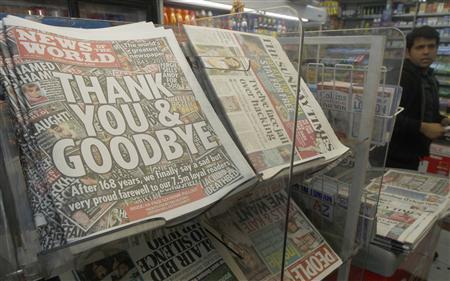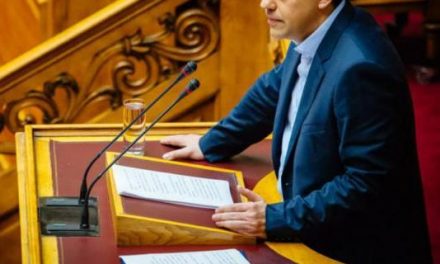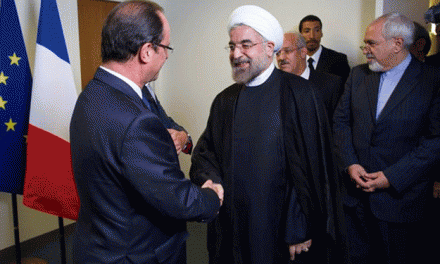By Paul Sandle
When Rupert Murdoch, his media empire under fire over a phone-hacking scandal, swept into his London headquarters on Sunday from the United States, the message was clear.
Murdoch, sporting a white panama-style hat, sat in the front passenger seat of a red Range Rover intently reading a copy of the final edition of the best-selling newspaper he had closed only hours earlier to try to contain the spreading crisis.
“The World’s greatest newspaper 1843-2011,” said the front page, held up for all to see. “Thank you and goodbye.”
Newspaper staff had departed, amid scenes of cheering and emotion at the same London complex, in the early hours. Many employees saw themselves as having been sacrificed by Murdoch to save his broader business interests.
But Murdoch was signaling he was not bowed. He has already made clear he has no intention of yielding to criticism and removing senior executives, nor of giving up his proposed multi-billion-dollar buyout of British broadcaster BSkyB.
The newspaper he held high had a particular symbolic significance for Murdoch. It was the first British newspaper he bought, in 1969, and the cornerstone of what became a huge media empire with political influence that, with the hacking scandal, has become the subject of much soul searching in Britain.
Admirers saw the demise of a national institution, famous for exposure of the misdemeanors of the rich, royal and famous, for its gossip and for its pictures of scantily clad women.
Critics saw in the closure a long overdue chance to cut back Murdoch’s ability to influence British politicians through his global media empire.
“The specter of the old Murdoch, the one whose demise was signaled last week — powerful, voracious and threatening — must not be allowed to rise again from the ashes of the News of the World,” said an editorial in The Observer, a rival weekly.
Copies of the last edition were selling well, said newspaper vendor Jean Natella at London Bridge Station.
“I think it’s a shame because they’ve done a lot of good, they’ve riddled out a lot of, let’s say, nasty people,” she said. “It’s unfortunate that a few people have brought it down. But they have got no choice because they condemned others so they have got to show they are accountable.”
Regular reader Michael Mitchell, a revenue officer, said, “I don’t think it should close; I think the people responsible should not be there.”
“They have, I feel, overstepped the mark. Or they’ve been found out, because if this paper is doing it you can bet the majority of them are doing it as well.”
Researcher Jonathan Schifferes said journalism would be disgraced for a long time as a result of the (phone-hacking) allegations, and the scandal reflected badly on Britain.
The headline of the last edition was simple and unusually low key and underneath in smaller print added: “After 168 years, we finally say a sad but very proud farewell to our 7.5 million loyal readers.”
The words appeared over a montage of some of the paper’s most famous front pages, most of them involving celebrities, members of the royal family and politicians.
Inside, the paper ran several nostalgic editorials charting its successes over the years, in addition to the usual fare of celebrity gossip, showbiz and other news. The only adverts the last issue carried were for charities.
The owners of News of the World made the shock decision to close the title on Thursday in the face of mounting criticism of its newsgathering techniques. [nL6E7I909T]
Claims of illegal hacking into the voicemails of stars, royals, families of soldiers killed in combat and a kidnapped girl later found murdered have engulfed parent company News Corp in scandal.
The print run for the last News of the World was bumped up to five million copies, nearly double the normal number, in anticipation of a spike in demand for the historic edition.



















